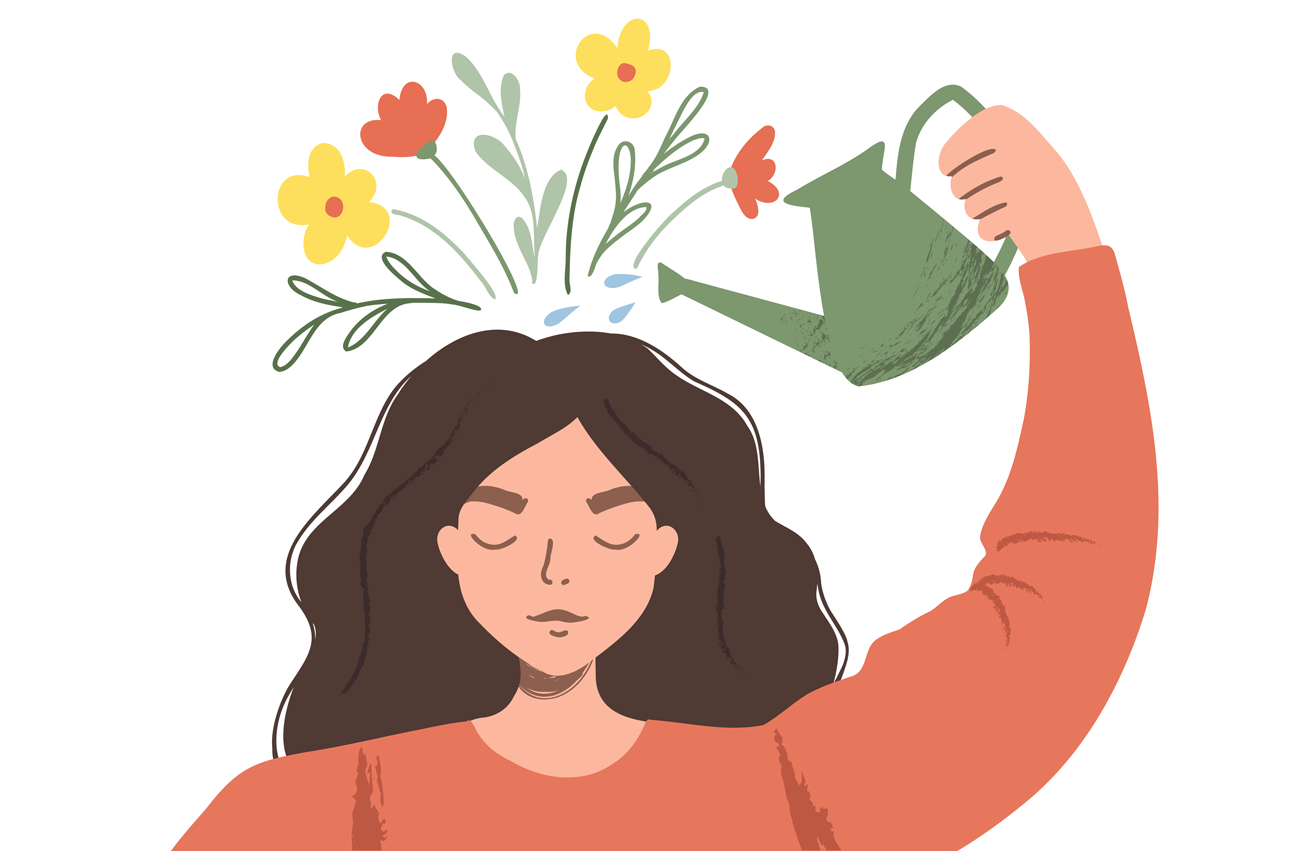
Improve Your Mindfulness With These 5 Easy Tips
The mindfulness movement has changed the way in which many people deal with stress and other mental health issues, and mindfulness techniques are often encouraged by health professionals to help patients overcome conditions relating to poor mental health. In fact, in 2010, it was revealed that 72% of GPs believe that it would be helpful for patients with mental health problems to learn mindfulness meditation skills.
But what is mindfulness? It is a practice that enables us to be more aware of the present moment – how we feel, what we see, what we’re thinking about. Adding to that, mindfulness discourages dwelling on the past or focusing too strongly on the future, which is essential for combating feelings of anxiety or depression.
Where Does Mindfulness Come From?
Mindfulness is a modern iteration of a Buddhist tradition called ‘sati’. The practice involves paying attention to the sensory experience of life, and dispelling any disturbing thoughts or emotions that may arise.
Today, mindfulness exercises are used in the West in a more informal way to ease depression, anxiety, stress and even drug addiction. The practice has been adopted in the medical profession, within educational environments, in prisons, and in more areas where there may be a prevalence of poor mental health.
Dr Christos Kouimtsidis, Consultant Psychiatrist at The London Psychiatry Centre, explains, “Mindfulness is being increasingly encouraged by doctors not just in the mental health field, but in all disciplines, as we know that poor mental health is linked to certain physical health conditions. It is something that we can all practice to help counteract our fast-paced lives, as it encourages awareness of oneself and one’s surroundings.”
But Is Mindfulness All It’s Cracked Up To Be?
The commercialisation of mindfulness has led to the practice being portrayed as a cure-all for mental health problems, which may discourage people with more serious conditions from getting the right help. Studies have shown that mindfulness is positively associated with psychological health, but it should not be the only form of therapy for those who are deeply affected by mental health issues. Instead, it can be adopted as part of a healthy lifestyle, and can be performed daily to enhance wellbeing.
Why Is Mindfulness Important For Mental Health?
Many of us lead busy lives where we have little time to focus on the present. Whether it’s worrying about meeting deadlines at school or work, or lingering on moments from the past such as a break-up or losing a loved one, we are all guilty of thinking outside of the present moment.
However, while contemplating the past or future isn’t necessarily a bad thing, it can become a negative habit if you do it regularly and it causes you to experience low moods.
Instead, acknowledging how you feel in the present moment can help you enjoy the world around you more. When we are caught up in our thoughts, we often take the present for granted and forget to appreciate the more ‘trivial’ aspects of our lives, such as the comfort of the chair we are sitting in, or the pleasant sound of birdsong.
Mindfulness can also be used to pull yourself out of a state of low mood. For example, if you have anxiety about something that is not directly affecting you at that moment, you could use mindfulness to remind yourself that things aren’t as bad as you might think they are.

5 Ways To Be Mindful
Mindfulness can be practised in a variety of different ways, and what may work for one person might not work for another. If you are planning to improve your mindfulness, try the following exercises to see what works for you:
1. Become aware of your mental health
Whether it’s anxiety, low mood, stress or another issue, one way to work towards mindfulness is to become aware of the moment when you slip into the habits of that issue.
You may recognise this moment by your breathing becoming faster, a heavy feeling in the pit of your stomach, or the need to carry out a compulsion such as snacking. Being more mindful means being aware of this change in your mental state. This will help you make more positive choices in how you deal with the change, allowing you to work towards better mental health.
2. Breathing exercises
Breathing is something we do every day without thinking, but becoming more aware of your breathing, and breathing deeply and steadily for a moment or two, can help you relieve stress and anxiety. This is because your parasympathetic nervous system engages and relaxes your cardiac muscles, in turn creating a feeling of calmness.
You can do breathing exercises while sitting, standing or lying down. Breathe in deeply through your nose, and out through your mouth. Some people find it helpful to count while breathing, for example, breathing in for four seconds and breathing out for eight. Do this until you feel calmer.
3. Create a ‘happy place’
This could be a place in your mind, or a physical place that you can go to in order to improve your mood.
If it’s a place in your mind, picture it as vividly as you possibly can. Ask yourself how you feel, what you smell and what colours you can see. Picture yourself walking around or sitting in your happy place. When you’re ready, bring yourself back to the present moment.
4. Reduce your use of social media
Social media can make us laugh and help us catch up with loved ones, but when it starts to bring down your mood, it’s time to take yourself away from it. Try downloading an app that notifies you when you’ve used your phone too much, or remove social media apps from your homescreen so that you’re not tempted to tap on them.
5. Eat purposefully
We eat to fuel ourselves, but this purpose can become lost when we take food for granted, and mindlessly consume without acknowledging how we feel. This can lead to weight gain and excessive consumption of food that have poor nutritional value, which can contribute to low mood and low self worth.
During your next meal, savour each bite and chew slowly. Try not to watch TV or engage in other distractions. Instead, focus on your food and stop eating when you become full. Try to do this at least once per day to improve your mindfulness when it comes to eating.
Take Charge Of Your Mental Health
Mindfulness is just one way in which we can take power over our mental health. You can find more self-help tips on our blog.
If you or someone you know needs further mental health support, please do not hesitate to contact our friendly team using the details below:

